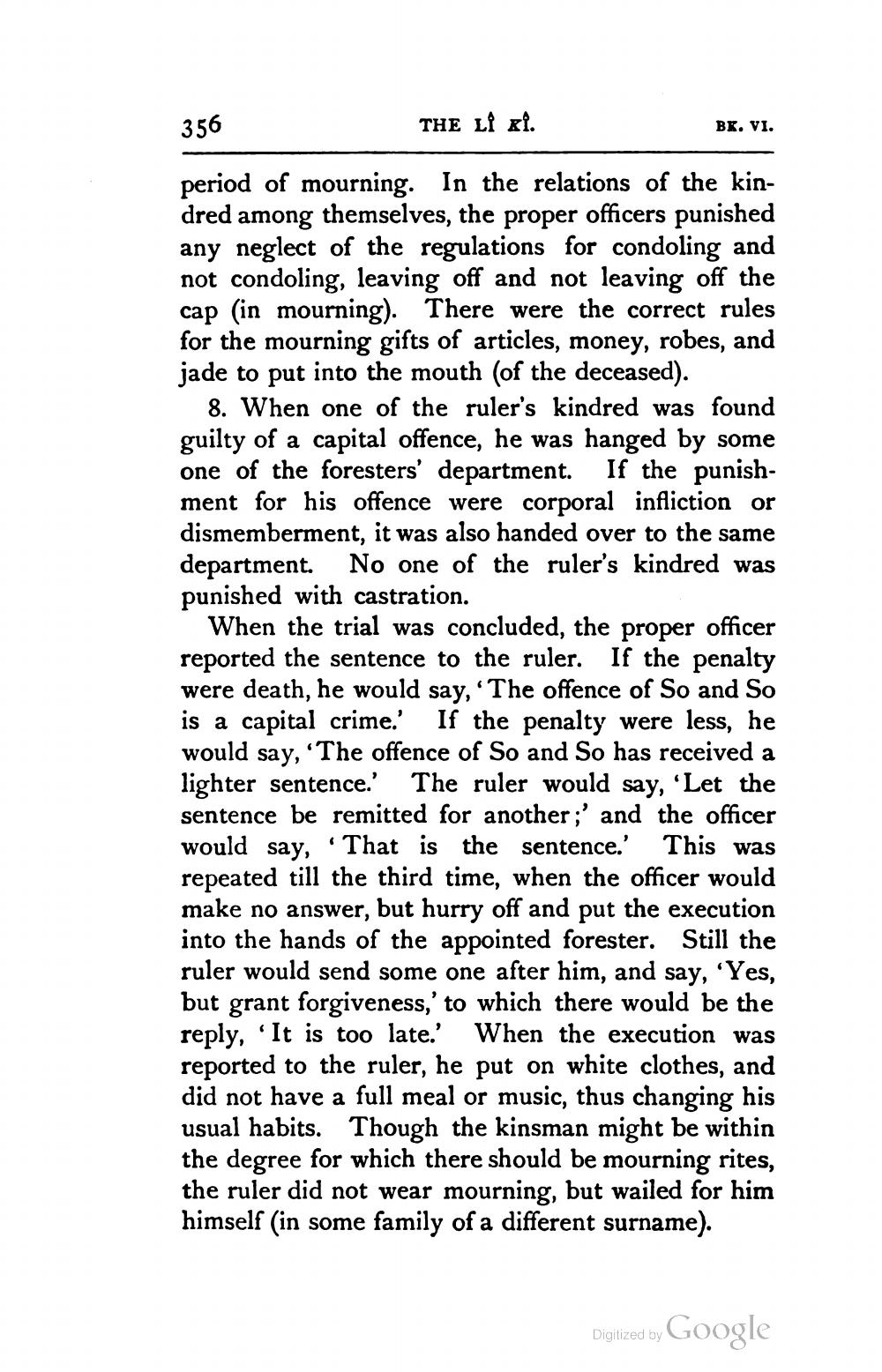________________
356
THE LI Kİ.
period of mourning. In the relations of the kindred among themselves, the proper officers punished any neglect of the regulations for condoling and not condoling, leaving off and not leaving off the cap (in mourning). There were the correct rules for the mourning gifts of articles, money, robes, and jade to put into the mouth (of the deceased).
BK. VI.
8. When one of the ruler's kindred was found guilty of a capital offence, he was hanged by some one of the foresters' department. If the punishment for his offence were corporal infliction or dismemberment, it was also handed over to the same department. No one of the ruler's kindred was punished with castration.
When the trial was concluded, the proper officer reported the sentence to the ruler. If the penalty were death, he would say, 'The offence of So and So is a capital crime.' If the penalty were less, he would say, 'The offence of So and So has received a lighter sentence.' The ruler would say, 'Let the sentence be remitted for another;' and the officer would say, That is the sentence.' This was repeated till the third time, when the officer would make no answer, but hurry off and put the execution into the hands of the appointed forester. Still the ruler would send some one after him, and say, 'Yes, but grant forgiveness,' to which there would be the reply, 'It is too late.' When the execution was reported to the ruler, he put on white clothes, and did not have a full meal or music, thus changing his usual habits. Though the kinsman might be within the degree for which there should be mourning rites, the ruler did not wear mourning, but wailed for him himself (in some family of a different surname).
Digitized by
Google




